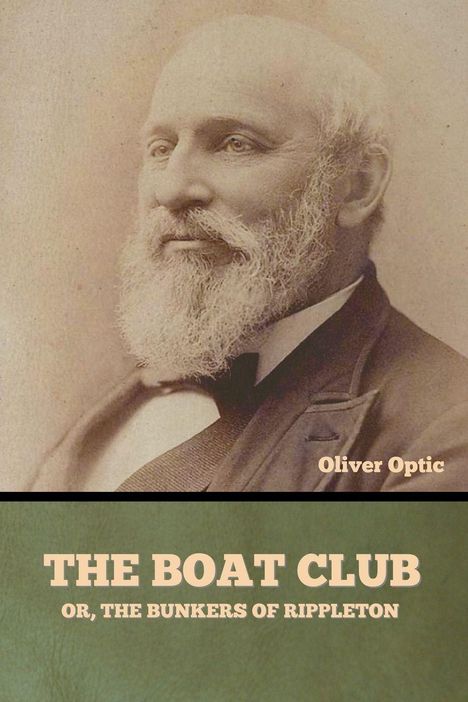Oliver Optic: The Boat Club; or, The Bunkers of Rippleton, Kartoniert / Broschiert
The Boat Club; or, The Bunkers of Rippleton
(soweit verfügbar beim Lieferanten)
- Verlag:
- Bibliotech Press, 10/2025
- Einband:
- Kartoniert / Broschiert
- Sprache:
- Englisch
- ISBN-13:
- 9798897732753
- Artikelnummer:
- 12522935
- Umfang:
- 126 Seiten
- Gewicht:
- 217 g
- Maße:
- 229 x 152 mm
- Stärke:
- 8 mm
- Erscheinungstermin:
- 28.10.2025
- Hinweis
-
Achtung: Artikel ist nicht in deutscher Sprache!
Klappentext
The Boat Club; or, The Bunkers of Rippleton (1855) is a classic 19th-century boys' adventure and moral tale by Oliver Optic. It is the first book in the Boat Club Series, which follows the lives and adventures of a group of boys in the fictional New England village of Rippleton.
The story centers on Frank Sedley, a kind, intelligent, and upright boy who moves to Rippleton and becomes the owner of a small sailboat named the Butterfly. Frank's leadership, honesty, and good sense soon attract other boys who share his enthusiasm for boating. Together, they form a club devoted to recreation, discipline, and moral improvement - The Rippleton Boat Club.
However, not all the boys in town share Frank's wholesome spirit. The Bunker family, especially Charles ("Charley") Bunker and his brothers, represent mischief, envy, and disorder. They mock the boat club's ideals and try to undermine its members through pranks and bad behavior. Their jealousy and recklessness contrast sharply with the club's values of teamwork, self-control, and fair play.
Through a series of boating adventures, competitions, and moral challenges, Frank and his friends demonstrate courage, fairness, and forgiveness. The story teaches lessons about integrity, leadership, friendship, and the rewards of virtuous conduct - key themes in Optic's works. By the end, even some of the troublesome Bunkers begin to reform, showing the redemptive power of good example and perseverance.
About the Author
William Taylor Adams (July 30, 1822 - March 27, 1897), pseudonym Oliver Optic, was an academic, author, and a member of the Massachusetts House of Representatives.
Adams first began to write at the age of 28, and his first book, Hatchie, the Guardian Slave (1853), was published under the pseudonym of Warren T. Ashton. It was only a modest success, but Adams was undaunted. In 1854 Adams produced his first real hit, the initial volume in the Boat Club series. Adams continued to write until he died in Dorchester, March 27, 1897. Among his best-known works were the two "Blue & Gray" series, which were set during the Civil War.
Adams wrote well over 100 books in total, most of them for a boy audience, and the majority of these in series of four to six volumes published under a pseudonym. Two novels published in his own name, The Way of the World and Living Too Fast, were aimed at adult readers but fell flat. Though "Oliver Optic" was the pseudonym he used most, his work also appeared under the bylines "Irving Brown," "Clingham Hunter, M. D.," and "Old Stager." Like many children's authors of his day, he was additionally an editor, and many of his works first appeared in Oliver Optic's Magazine.
Adams' writing was criticized by Louisa May Alcott, among others. Alcott used her story Eight Cousins to deplore Adams' use of slang, his cast of bootblacks and newsboys, and his stories of police courts and saloons. Adams responded in kind, pointing out Alcott's own use of slang and improbable plot twists. (wikipedia. org)


